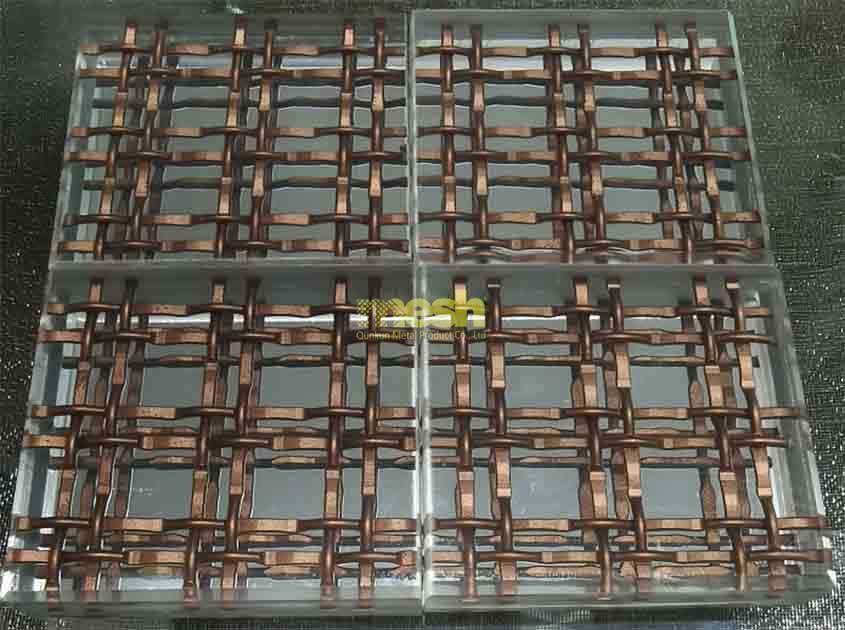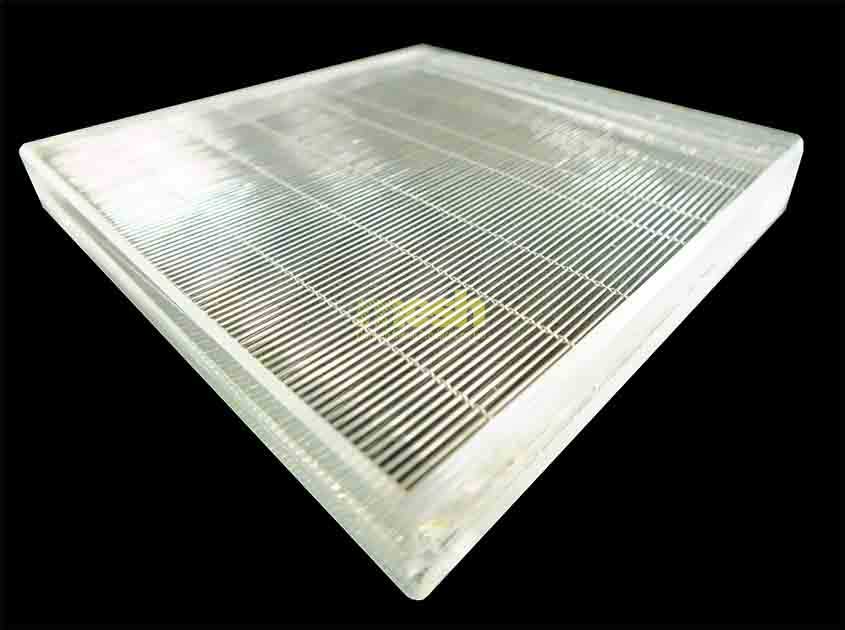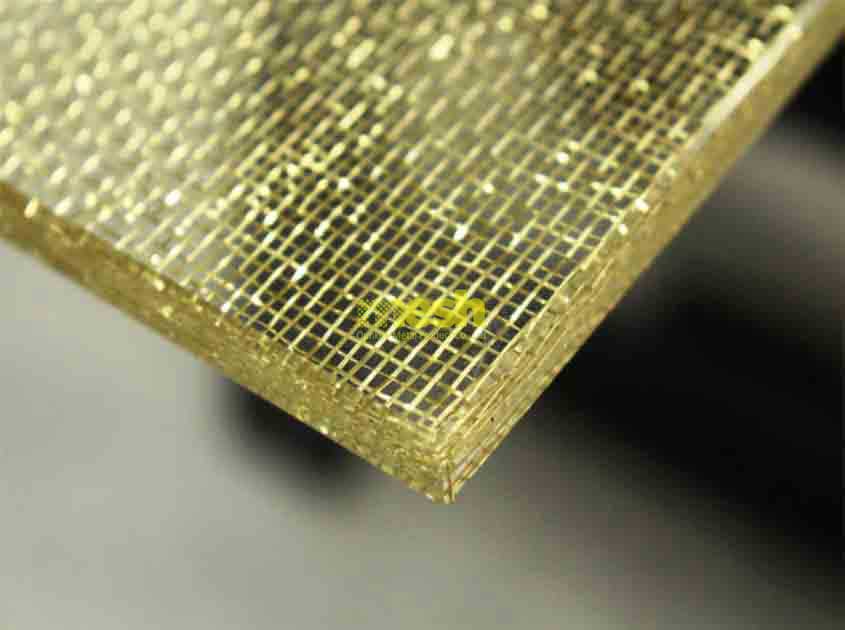Laminated glass metal mesh, renowned for its strength, safety, and versatility, can be further reinforced with the addition of metal mesh. The integration of metal mesh enhances the glass's structural integrity, providing additional benefits such as increased security, improved aesthetics, and enhanced performance. In this article, we will explore the most commonly used types of metal mesh in laminated glass, their unique characteristics, and their applications in various settings.

Stainless Steel Mesh:
Stainless steel mesh is one of the most widely used types of metal mesh in laminated glass applications. Its exceptional strength, durability, and resistance to corrosion make it suitable for a range of indoor and outdoor settings. Stainless steel mesh offers excellent security and protection against forced entry attempts, while maintaining transparency and visibility. Its versatility allows for customization in terms of mesh size, weave pattern, and wire diameter, catering to specific project requirements. This type of metal mesh is commonly used in high-security facilities, commercial buildings, and residential properties.

Aluminum Mesh:
Aluminum mesh is favored for its lightweight properties and high strength-to-weight ratio. It is an ideal choice for applications where weight is a concern, such as façades, curtain walls, and suspended ceilings. Aluminum mesh provides a contemporary and sleek appearance to laminated glass, enhancing the overall aesthetics of the building. It is resistant to corrosion and offers good durability, making it suitable for both indoor and outdoor installations. Aluminum mesh is commonly used in modern architectural designs, where a balance between security, aesthetics, and performance is desired.

Copper Mesh:
Copper mesh is valued for its distinctive appearance, excellent conductivity, and antimicrobial properties. When used in laminated glass, copper mesh offers a warm and luxurious aesthetic, adding a touch of elegance to architectural designs. Its antimicrobial properties make it suitable for applications where hygiene is a priority, such as healthcare facilities and food processing environments. Copper mesh is highly durable and resistant to corrosion, making it suitable for both interior and exterior use. Although less common than stainless steel or aluminum, copper mesh is often chosen for its unique visual appeal and functional benefits.
pre:How does Laminated Glass Metal Mesh enhance the security of buildings
next:What are the fire-resistant properties of Laminated Glass Metal Mesh
© 2025 Joinwin Architectural Wire. All Rights Reserved. | Sitemap
Recommended Read
Does Laminated Glass Metal Mesh offer protection against electromagnetic interference
Can Laminated Glass Metal Mesh be used for branding and signage purposes